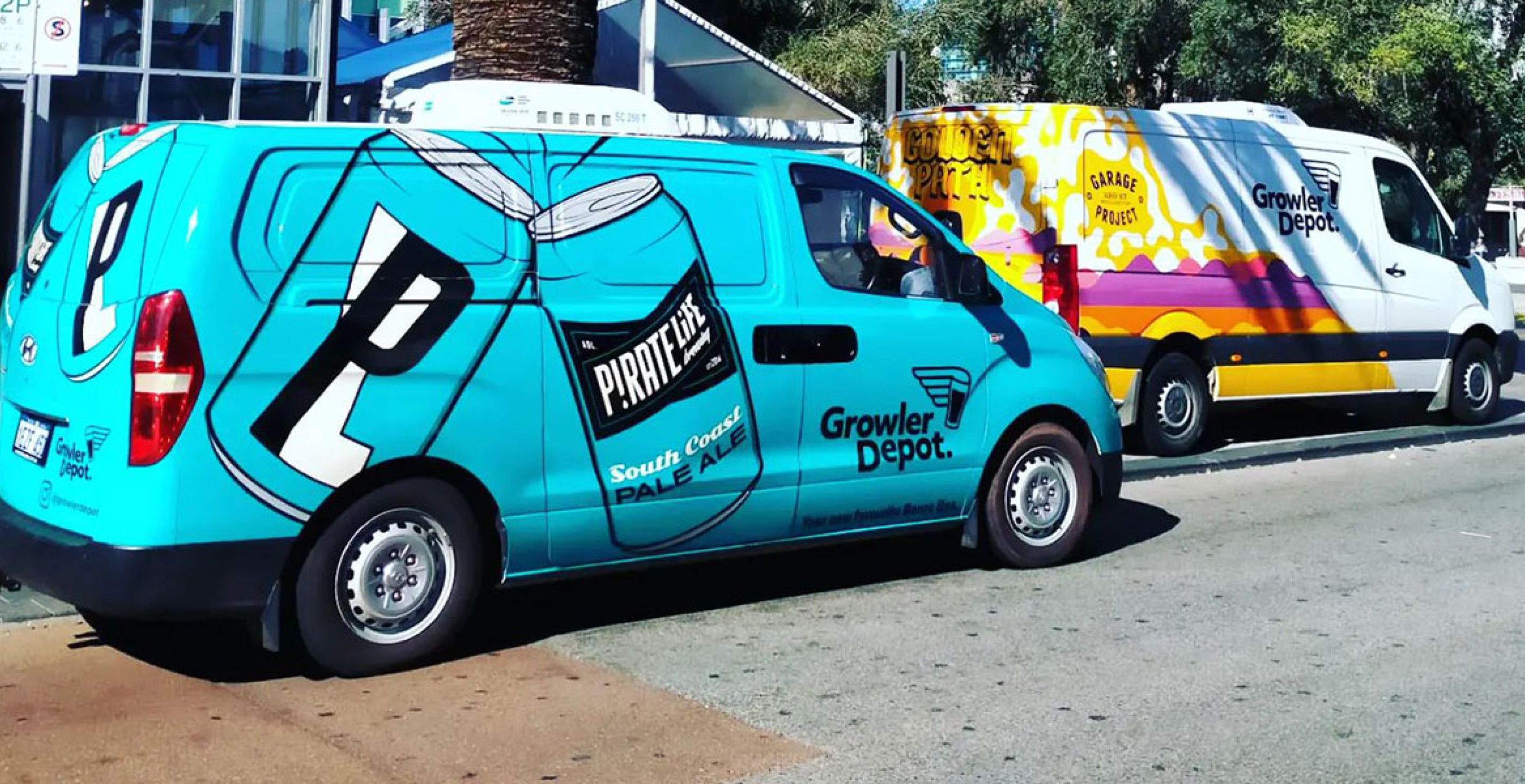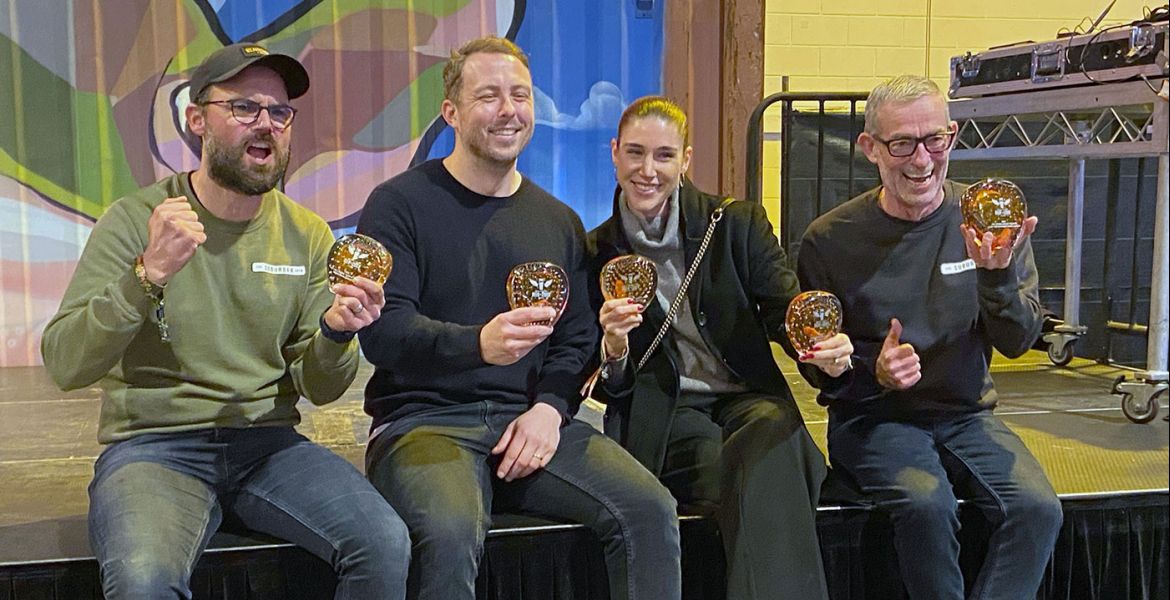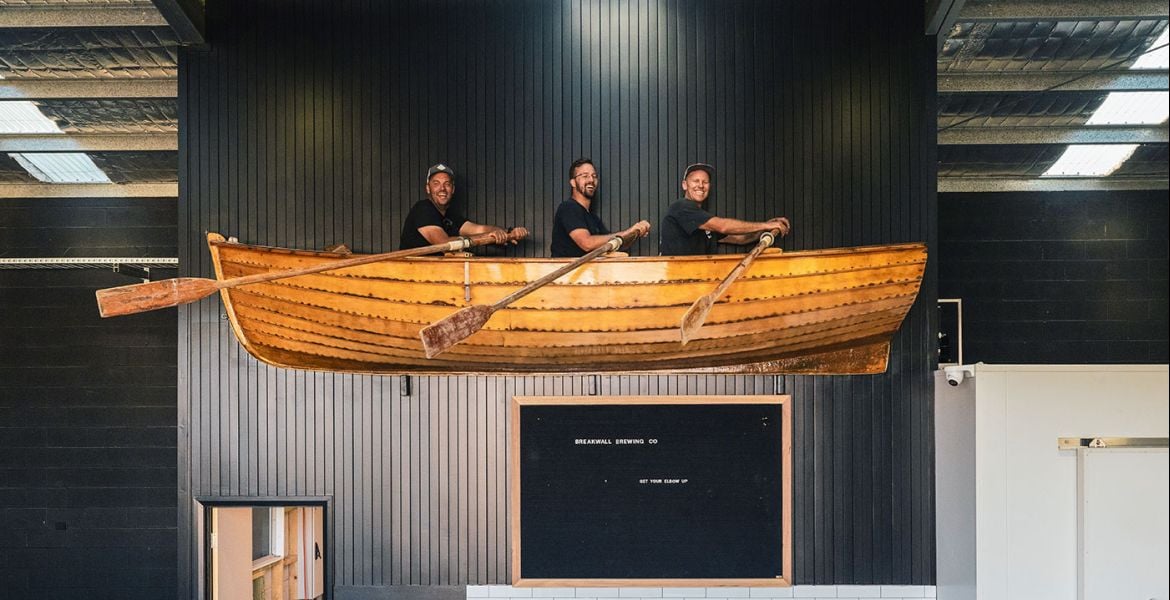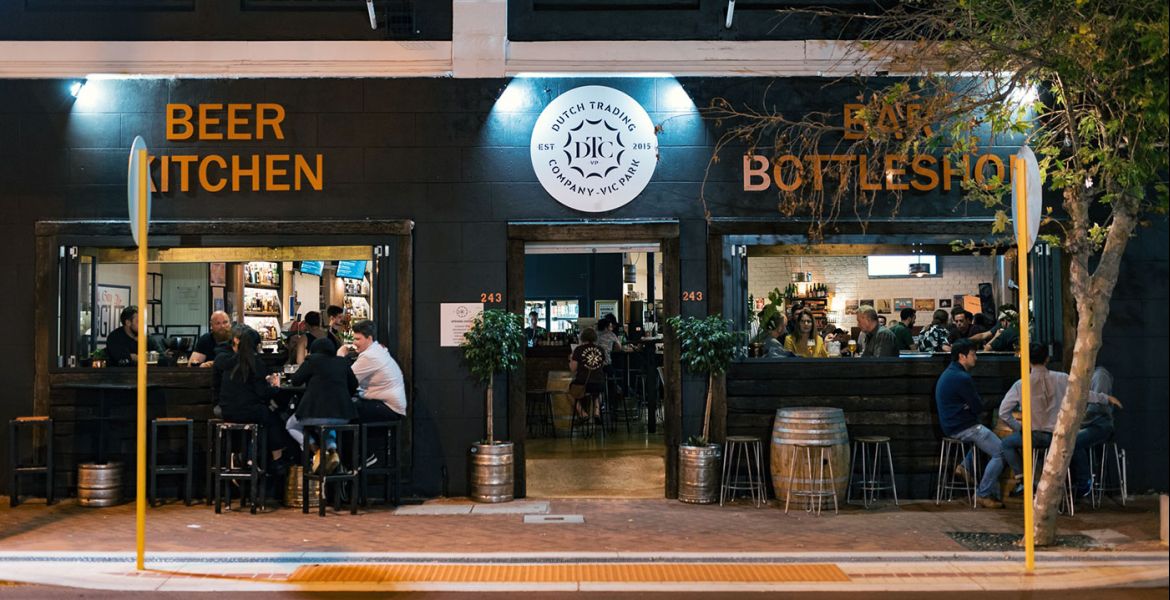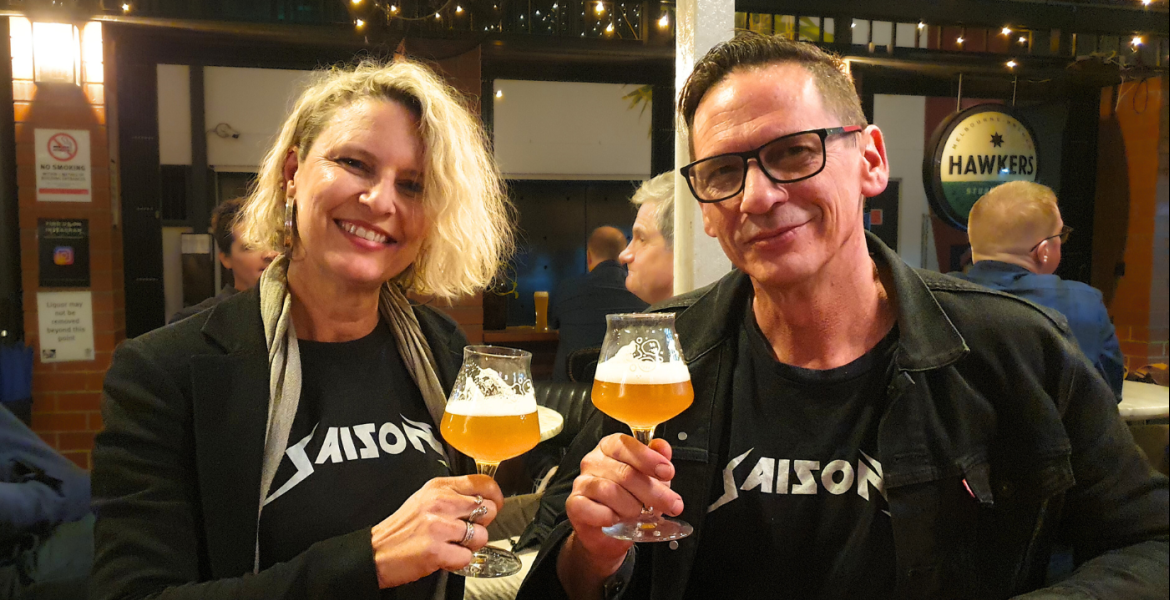Western Australia is a vast and often exceedingly hot state, meaning the fleets of refrigerated trucks moving craft beer between breweries, warehouse and venues in recent years have played a crucial role. Since 2017, such cold chain logistics have come courtesy of Growler Depot and Beer Caddie – and now two have become one.
Late last year, the former took over the latter, and while business sales aren't always positive there's been much to smile about for the people behind the two operations; they not only provided a similar offering to the state's beer industry but also enjoyed a close relationship with each other.
As Beer Caddie founder Russell Howell puts it, his regular chats with Growler Depot managing director Tim Greaner were "almost like a little cross-mentoring thing – having a like-minded person that we could actually sit down with to talk about clients, or bottleshops and venues."
The self-confessed beer fan adds: “That's probably why I got into it to begin with. I love the camaraderie of the brewing industry and didn’t really have the capital to go and spend half a million bucks on stainless steel from day one.”

Initially, Russell started Beer Caddie as a means of providing craft beer and events and functions: his Volkswagen Caddy inspired the name of the business and was soon appearing at weddings around the South West. But, before too long, the business began to snowball, with breweries eager to use his refrigerated van to get their beer into venues and bottleshops in good condition.
“All of a sudden they were saying, ‘Hey, when you come to pick this up, do you mind dropping something over here?' And it just spiralled from there,” he says.
The evolution of Beer Caddie saw the business expand beyond catering and into sales-repping and third-party logistics; Russell calls it a side hustle that grew very quickly. Despite the growth, he retained his job in project management and, over time, the idea of selling the business started to nag at him. Establishing a major cold storage facility of his own would have required significant capital investment so, before heading down that path, he decided to chat things over with Tim. And, from there, things moved fast.
“It was a coffee a week before Christmas with Tim and his business partner Stuart, and then we shook hands on a deal three or four days later.”

Beyond their shared history of “trading war stories” about logistics, the acquisition of the logistics side of Beer Caddie made sense: not only were both businesses dedicated to cold shipping but, as Tim puts it: “We’re dealing with breweries of all the different shapes and sizes with different needs, so you do have to tailor what you do to some extent.”
The acquisition means Growler Depot now work with around 60 breweries, ranging from craft brands owned by the country's two major breweries to far smaller operations. And, as part of the deal with Russell, they ensured none of his customers would miss a delivery during the handover – no easy feat given it took place during the busiest beer drinking months of the year.
Since launching just over a half decade ago, Growler Depot has expanded, taking control of a new 4,000 square metre warehouse, with around 1,500 square metres assigned for storing pallets cold and leaving plenty of room to grow. They now have eight trucks on the road and have taken on some of Beer Caddie’s staff.
Tim believes part of the reason for their growth can be credited to a change in mindset within the industry and the expectation that craft beer needs to be shipped cold. Back when Growler Depot was launched by some of the faces behind Beerfarm in Metricup, many of the early conversations were quite different...
“There was a little bit of an education piece about the importance of it,” Tim recalls. “But now we’re more sought out and people see the need for us to look after their product.
"Brewers put so much effort into making the absolute best thing they can, and then it leaves their warehouse and the person drinks it, and doesn’t get the experience [the brewer] intended.”

This change in expectations, which is shared by brewers, retailers and many drinkers too, is something Russell has welcomed, although the change he's most grateful to have witnessed in WA is the growth of the breweries with whom he works.
“Our growth was in part through new businesses coming on,” he says. “But also the organic growth of our existing client base and the great work and beer breweries are producing locally.”
As for the future, now he’s no longer responsible for moving beer around, he’s looking forward to getting back to being a punter.
“Certainly, beer festivals will become more appealing to me rather than just being a big logistical rush and then a big clean-up exercise.”



